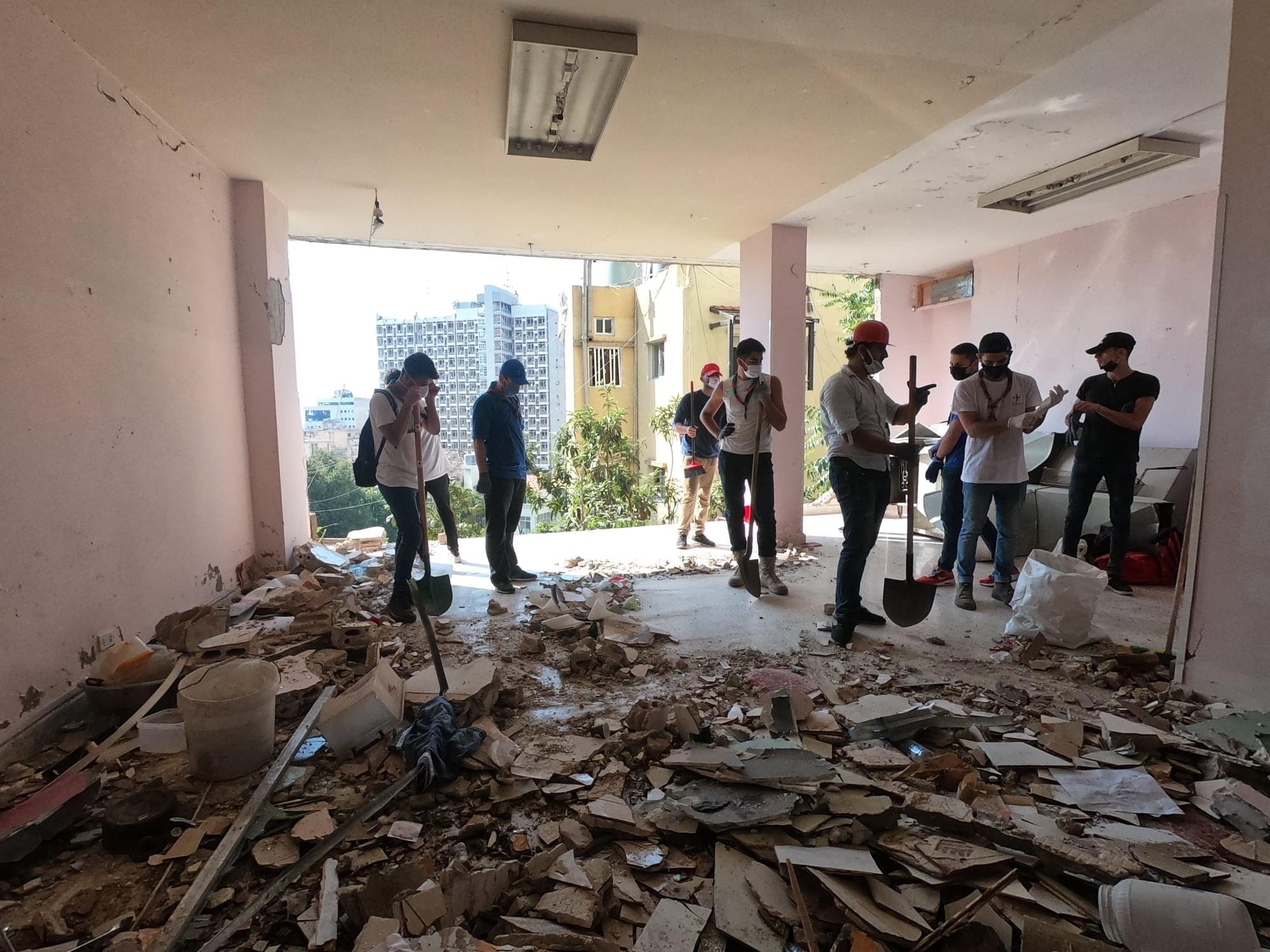A massive explosion rocked Beirut on Aug. 4, killing over 200 people, destroying 70,000 houses and leading to the resignation of Lebanon’s government.
According to BBC, just after 6 p.m. a fire in the Port of Beirut ignited warehouses storing 2,750 tons of ammonium nitrate—a chemical commonly added to fertilizers that is also used by the mining industry to create explosives.
The explosion in Beirut caused a mushroom cloud to bloom over the port and sent a shock wave into the capital. Over 5,000 people were injured and windows shattered miles away from the epicenter of the blast. Seismographs registered its power as equivalent to a 3.3-magnitude earthquake.
Damage to the city was so extensive that over 300,000 people have been displaced from their homes.
The chemicals arrived in 2013, when a Russian cargo ship on its way from Georgia to Mozambique made an unscheduled stop in Beirut.
Lebanese port officials impounded the ship and its cargo of ammonium nitrate due to unpaid port fees and “gross violations in operating a vessel,” according to CNN. Igor Grechushkin, the Russian businessman leasing the vessel, abandoned the ship.
Its cargo languished in a dockside warehouse for years despite repeated warnings of the danger it posed. Four years ago, a contractor for the United States government warned a Lebanese port official that the ammonium nitrate stockpile at the port was a security risk.
In 2016, Lebanon’s then-Director of Customs, Chafic Merhi, wrote to a judge: “due to the extreme danger posed by [these] stored items in unsuitable climate conditions, we reiterate our request to the Port Authorities to re-export the goods immediately to maintain the safety of the port and those working in it.”
Security officials alerted Lebanon’s leaders to the dangers of the stored chemicals in July—mere weeks before the stockpile detonated. In a July 20 letter to the president and prime minister of Lebanon, a top security official referenced a judicial investigation in January that concluded the chemicals were in immediate need of safer storage, according to Reuters.
Lebanese authorities, joined by international investigators including the FBI, will investigate the causes of the explosion, as it is unclear what caused the fire at the port.
“The cause has not been determined yet,” Lebanese President Michel Aoun said. “There is a possibility of external interference through a rocket or bomb or other act.”
The explosion sparked protests in Beirut as thousands of residents expressed their anger at a government they see as corrupt and negligent, according to The Middle East Eye. Law enforcement responded with tear gas and rubber bullets. Over 700 people were wounded and one police officer was killed during the protests.
The Lebanese government, led by Prime Minister Hassan Diab, stepped down on Aug. 10. “I said before that corruption is rooted in every juncture of the state,” Diab said, “but I have discovered that corruption is bigger than the state.”
Aoun accepted the government’s resignation, but requested it remain until a new cabinet is formed, according to Al Jazeera.
The people of Lebanon continue to protest against the government. On Aug. 10, the Lebanese parliament voted to grant extensive powers to the army under the current state of emergency. Rights groups fear a crackdown on freedom of speech and assembly.






